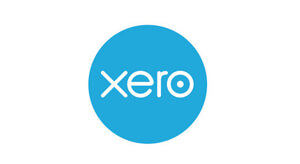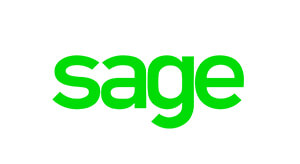Late payments are a silent killer of small businesses. According to the Federation of Small Businesses, over 50% of small businesses in the UK are impacted by delayed invoices, costing the economy billions and forcing many to dip into personal savings or business overdrafts. At
Momentum Bookkeeping, we’ve seen the real-world impact of inconsistent cash flow. That’s why a solid credit control process isn’t optional; credit control for small businesses is a lifeline.
Whether you’re a start-up navigating your first set of accounts or a growing business looking to tighten finances, this comprehensive guide will help you master credit control management. With practical advice and clear steps, you’ll walk away ready to improve your cash flow, reduce risk, and stay in control.

What is credit control in a small business?
Credit control refers to the strategies, processes, and systems a business uses to ensure customers pay on time. For small businesses, this typically includes setting payment terms, sending timely invoices, running credit checks, and issuing follow-ups on overdue accounts.
It’s all part of a larger credit control process designed to protect your cash flow, limit risk, and ensure your business remains financially healthy. Small businesses often rely on sole traders or outsourced bookkeeping services to handle this vital function, unlike larger corporations with internal finance teams.
Your credit control policy should answer questions like:
- Who is responsible for issuing and chasing invoices?
- What are the standard payment terms?
- What happens when a payment is overdue?
- How do we assess customer risk?
Without a formal credit control system, late payments can quickly pile up, leaving you scrambling for funds and putting undue pressure on the rest of your operations.
Why is credit control important?
The importance of credit control lies in how it directly affects a business’s ability to operate. Here are some key reasons why every small business should prioritise it:
- Maintains consistent cash flow: Regular incoming payments mean you can pay staff, suppliers, and bills on time, keeping the lights on and your reputation intact.
- Reduces bad debt risk: Without proper credit control procedures, you’re more likely to encounter customers who delay or default on payments. Preventing these losses early is far easier than chasing payments later.
- Strengthens financial forecasting: Reliable cash flow data lets you plan for investments, manage payroll, and make decisions with confidence. This level of insight is only possible with good credit control management.
- Saves time and resources: A good credit control system reduces admin time spent chasing unpaid invoices, freeing you to focus on revenue-generating activities.
- Improves relationships: Contrary to popular belief, clients respect clear boundaries. Being firm but fair with your credit terms shows professionalism and sets the tone for future transactions.
At Momentum Bookkeeping, we help small businesses establish a clear credit control policy so you’re never left in the dark when it comes to cash flow.

Effective credit control techniques for small businesses
So, how do you take control of your business’s cash flow? Here are expanded techniques to make your credit control policy more robust and results-driven:
Set detailed and enforceable credit terms:
Go beyond vague payment deadlines. Include:
- Standard credit period (e.g., 30 days from invoice date)
- Interest rates for late payments
- Your right to cease services or withhold goods on non-payment
- A clause referencing the Late Payment of Commercial Debts (Interest) Act 1998
This forms the backbone of your credit control procedures and removes ambiguity when issues arise.
Perform credit risk checks:
Before extending credit to any new customer, carry out a basic credit check. This might involve:
- Reviewing Companies House filings
- Using a third-party tool like Experian or Creditsafe
- Requesting trade references
At Momentum, our credit control help includes vetting customers so you can make informed decisions without added risk.
Send accurate, detailed invoices immediately:
Delays in invoicing are payment delays. Your invoices should include:
- Unique invoice number
- Breakdown of services/products
- VAT details (if applicable)
- Payment terms and deadline
- Your bank details or payment link
If you’re using our bookkeeping services in Glasgow, we ensure invoices are issued fast, correctly formatted, and easy for clients to act on.
Follow up with structured reminders:
Adopt a professional but firm reminder sequence:
- T-minus 5 days: Friendly reminder
- On due date: Nudge with confirmation of deadline
- 3–5 days overdue: Direct email with late payment notice
- 7+ days: Escalation with late fee warning or statement of intent
These follow-ups are a critical part of an effective credit control system, and can be handled by us through automated or personal channels.
Offer incentives and multiple payment methods:
- Encourage prompt payment with:
Early payment discounts (e.g. 2% off if paid within 10 days) - Multiple options, bank transfer, card, Direct Debit, PayPal
More convenience = faster payments.
Escalate diplomatically but firmly:
Have a process in place when clients don’t pay. Consider:
- A final warning letter
- Placing accounts on hold
- Escalating to a debt collection agency (last resort)
When handled by a credit control management service, this is done tactfully and lawfully, maintaining your client relationships where possible.
Work with professionals:
Managing all of the above can be time-consuming. That’s why outsourcing to experts like Momentum Bookkeeping, a trusted provider of bookkeeping in Glasgow, gives you peace of mind and reliable income without the admin stress.

What are the advantages of credit control?
Implementing a structured credit control system can transform your business operations. Here’s how:
- Cash flow stability: Keeps your income predictable and ensures you can cover expenses with ease.
- Less bad debt: Reduces the number of non-paying clients.
- Increased professionalism: Makes your business appear more credible and well-run.
- More time to focus on growth: Automating your credit control procedures means fewer distractions.
- Better customer accountability: Clients know where they stand and are less likely to delay payments.
What are the disadvantages of credit control?
While the benefits outweigh the drawbacks, it’s useful to be aware of potential downsides:
- Customer discomfort: Some clients may view reminders or credit checks as intrusive.
- Administrative burden: Without automation or support, managing credit control procedures can eat up time.
- Strained relationships: If not handled with care, chasing overdue payments may damage client trust.
That’s where professional help makes all the difference. Using bookkeeping services in Glasgow or other local specialists lets you balance professionalism with diplomacy.
What is the difference between credit control and credit management?
Let’s clarify a common point of confusion:
Credit control:
This is the execution, issuing invoices, reminders, and collections. It’s the hands-on, day-to-day process of getting paid.
Credit management:
This is the strategy: deciding your risk tolerance, setting client credit limits, and aligning your payment terms with business goals.
In simple terms, credit control management is a subcategory within your overall credit management control system. Both are essential, but the former is where most small businesses need immediate attention.
How to build a strong credit control system?
Here are the essential components of an effective credit control system:
- Clear internal credit policy: Documented rules for offering credit, setting limits, and handling late payments.
- Defined roles: Know who’s responsible for issuing invoices, sending reminders, and escalating overdue accounts.
- Customer vetting process: Perform background checks and risk assessments before offering credit.
- Tech-enabled tracking: Use accounting software (e.g., Xero, QuickBooks) to monitor invoices and automate communications.
- Regular reporting: Schedule monthly or weekly reviews of outstanding invoices.
- Professional support: Use local bookkeeping services like ours to provide dedicated credit control management without hiring in-house staff.
Local support makes all the difference
Whether you’re a builder, designer, or digital agency, being paid on time isn’t just a financial necessity; it’s your right. But it takes more than a few invoice emails to get there.
Partnering with a bookkeeper in Glasgow or your local area helps you stay ahead. At Momentum Bookkeeping, we bring structure, speed, and strategy to your financial processes. From invoice tracking to full credit control management services, we’ve got your back.

Wrapping Up…
In a world where small businesses often face long waits for payment, strong credit control for small businesses can be the key to stability and success.
At Momentum Bookkeeping, we understand that no two businesses are alike. That’s why our tailored approach to bookkeeping in Glasgow includes proactive credit control help, expert support, and strategic insights to ensure you stay in control, without the stress.
Ready to build a reliable credit control system?
Let us show you how. Contact Momentum Bookkeeping today and take the first step toward better cash flow and less financial friction.

Momentum Bookkeeping Ltd
Mentieth House, 29 Park Circus, Glasgow, G3 6AP
Call. 0141 375 1240
Email. info@mvbooks.co.uk




